“Wherever I can find a place to sit down and write, that is my home.”
Mary TallMountain
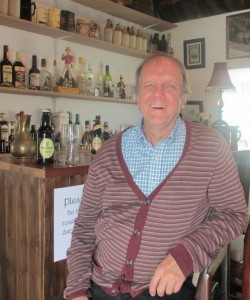
At Groiler’s, the one-room poetry bookstore in Harvard Square, back in 1996, I bought a copy of Finding What You Didn’t Lose— John Fox’s first book, subtitled, “Expressing Your Truth and Creativity Through Poem-Making.”
“It’s important to be a witness and to be present to someone so they can edge out a little, then a little more. If I can be without judgment–or at least not show it–people feel safe,” he tells me.
It would be almost two decades before I would meet this kind listener, poet and poetry-therapist, though I thumbed through the chapters year-by-year–always a believer: Writing can heal. Writing does heal.
In the English 101 courses I taught for almost 20 years, I saw it happening. In essays students wrote week-by-week, journals they kept, conversations we shared, the world shifted.
Students learned about themselves, writing words on the page. And we read poetry aloud and talked and wrote in response. They–and I, too–made connections and discovered possibilities for our lives. It was fun, and some who had recoiled in the beginning opened with the poetry.
From a young age, John knew he was a writer. Planning to study poetry with Ann Sexton and George Starbuck, he went to Boston University. Sexton would leave before her time, of course, and eventually John would transfer to Bard College. He continued his studies of literature though never called to deep-academia–earning a Ph.D. or publishing scholarly articles about Renaissance-men. He memorized Blake, Yeats, Ezra Pound and began exploring his spirituality with the likes of Ram Dass, later Stephen Levine, and he would eventually meet Joy Shieman–a poetry therapist at El Camino Hospital in Mountain View, California.
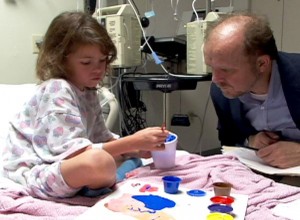
She became his teacher. “I learned to slow down and just listen,” John says of the years he shadowed her in workshops she led at the hospital.
“There was no rule, but I knew I wasn’t suppose to say much.” During those years as apprentice, he learned to observe. Because she was in charge, he had to let go of what he would like and what he thought was right.
“At El Camino, patients were required to attend classes and therapies, but Joy didn’t allow her Poetry Therapy program to be mandatory–and people could come late or leave early,” John remembers.
He has now created The Institute for Poetic Medicine. For decades he has taught and worked as a poetry therapist. He now supports others to do similar work in hospitals, hospices, with kids in classrooms, in pastoral care, cancer centers, with refugee and immigrant youth and with people suffering from TBI (Traumatic Brain Injuries) in communities internationally.
Poetry helped him to connect to his own experience.
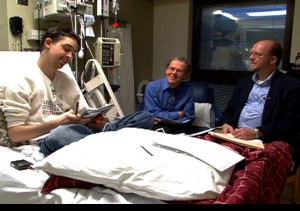
“It was more than transformative. It was a life-line. I had to do my own work in order to help others,” he says.
After seven previous operations, the first before the age of five, John lost his leg below the knee. He was 18, and–not surprisingly–as a college student wanted to blend into the crowd rather than call attention to himself. Once he stayed in his Boston University dorm for days when his leg grew infected and he couldn’t wear his prosthesis: He didn’t want to be known as the kid without a leg.
“I don’t want to push anyone. I was pushed into being seen.” There is a real difference when we chose to share and when we are on display–from circumstances–he says.
His own early suffering, this kind of pain that goes deep into a young person’s growing sense of self, led him to his work. Today, more than anything, he says he loves to hear a person’s story. Although he continues to lead workshops (and will soon return to Portland, Oregon) he also enjoys working one-on-one.

In his work with poetry, there is no critiquing. No one tells another poet how to fix a poem. John will read one or two, invite discussion, connections, and then everyone is invited to write. He offers prompts but no rules. When everyone is ready, he invites the willing poets to read their work aloud or pair off and share more privately.
His career continues to grow and expand. In mid July John had the good fortune to go walking in Dublin with my friend Annie Webster who he met many years ago while working with the Mind/Body Institute at the Harvard Medical School. Annie still works there, albeit at Massachusetts General Hospital now.
He has also worked with Stanford Medical School, Omega Institute, Esalen, as well as many Wellness Communities across the country. Over the summer he traveled to England, Ireland, Germany and British Columbia offering workshops and lectures.
There is growing interest in the way poem-making can support people working through depression —”largely because poetry offers a place to express authentic feelings of love and loss and also is a place to express genuine joy.”
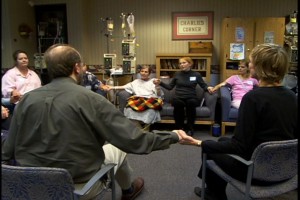
“I believe strongly that our creativity connects us with Spirit,” he says though believes in no single “right” path.
“There is a saying in an Eastern spiritual tradition that if you take one step towards Spirit, Spirit will take ten steps towards you. This may be especially clear in the creative process.”
“I feel grateful and lucky to be doing what I love. There are a lot of things in life that can be discouraging, but listening to people speak from their hearts is not one of them. I feel that poetry therapy has made me aware of the common ground we share, and my work as a poetry therapist has taught me a lot about listening–and that is healing.”
If you have interest in one or all of the Portland workshops John will lead November 6, 7 or 8-9, please email Marna Hauk or call (503) 771-0711 . You can also check out all of John’s events on his website.
Before Portland, he will travel to Dallas, Oklahoma City and Cleveland.
“Sharing your poetry with a trusted friend or a counselor can help,” says John, but he cautions patience. “The grief and difficulties we face in life may seem quite overwhelming. Poetry won’t change them overnight. But as a woman who had lost a child once told me about reading poems, ‘poetry is the only thing pure enough for me right now.'”
I think back to students at the community colleges where I taught, to insights they would share about a poem–observations and connections they would offer. And then, some, would write out of their lives–like the young woman back from a stint in Iraq: The way she read her words, one-by-one, taking her time, seemed a thank you to the pen for allowing her thoughts onto the page. We listened in awe, witness to her pain and her process of trying to make sense of it–or simply share. I felt healing happen during those moments. I was always grateful for those moments when a student could open. They taught me so much. The world was never quite the same. Thank you, I would say. Thank you.
Here are several poems by John Fox, and you can find more at his website:
 Consider What Happens
Consider What Happens
Consider what happens
upon hearing a poem
that moves you. The nod
of your head, tucking
your chin close
to your chest, as if
stopping to rest, as if you could cry now
in the middle of a long journey.
![]() Here, whatever you regret having forgotten
Here, whatever you regret having forgotten
even with your aching tiredness
(which you cannot forget) all of a sudden
turns to a surprisingly vibrant sky
as your eyes widen ever-so-slightly
in a recognition that shimmers
under your skin, wells-up
 into a calm line-of-sight
into a calm line-of-sight
that is your own and goes on
almost forever.
Astonished, you walk outside breathing
and slowly stroll in the fresh air
suddenly aware that back in your house
someone new, a stranger you like,
has arrived.
What If I Am?
Between eighteen and twenty
my mind cracked open.
My self and ideas about myself
were torn apart and I thought
I might be Jesus.
I thought:
What if I am?
Wouldn’t someone want to know?
I can tell you
The Book of Revelation made
a lot of sense to me —
no one else seemed to understand it.
It wasn’t like I’d joined a cult
or fundamental religion.
I wandered around Boston.
Didn’t Jesus wander around?
The problem was, what I haven’t
said, yet, is that
I also thought Revelation might be
about me. I mean, I might
be the cause of all the problems
that book spoke about,
so then I would be someone very different
from Jesus.
None of this was comfortable.
If only I could have found someone
who knew. But I didn’t.
. . . . . .
Poetry by John Fox & All photos courtesy of John Fox.
Links You Might Like:
John Fox’s website: http://poeticmedicine.org/
More poetry by John Fox: http://poeticmedicine.org/poetry.html
Writing Poetry with John Fox and Marianna Cacciatore, Bread for the Journey Radio
A place John visited in the summer of 2014: Glencolmcille on wikipedia
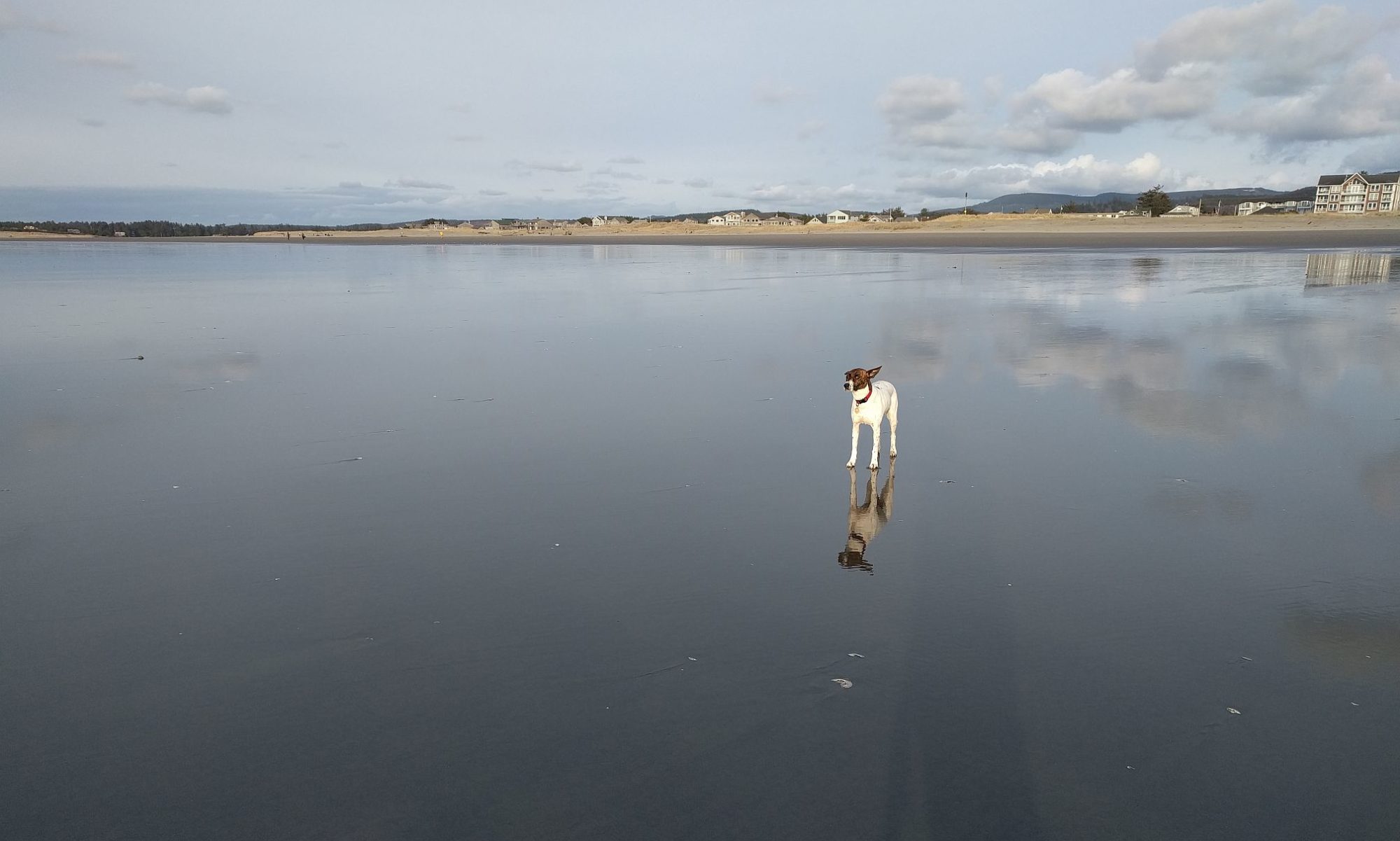

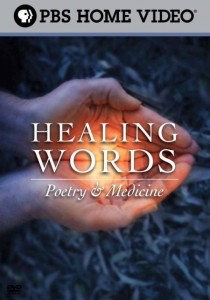
You have done it again Deborah. I thoroughly enjoyed this article. Thank you and keep them coming.
Wondering blog Deborah
I like that you started and ended with your own experience.
I love this quote
“I feel grateful and lucky to be doing what I love. There are a lot of things in life that can be discouraging, but listening to people speak from their hearts is not one of them. I feel that poetry therapy has made me aware of the common ground we share, and my work as a poetry therapist has taught me a lot about listening–and that is healing.”
Thanks, Girl. Let’s go to the Nov. wkshp. It would be veeery interesting and You would be just the one to go with.